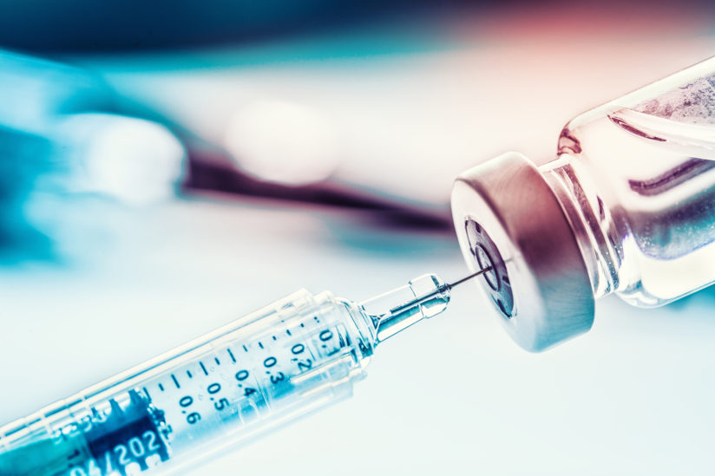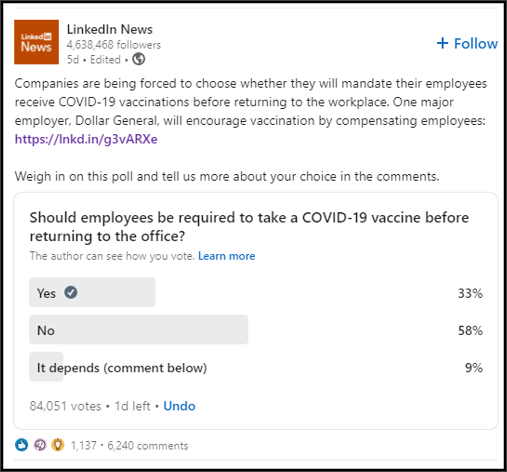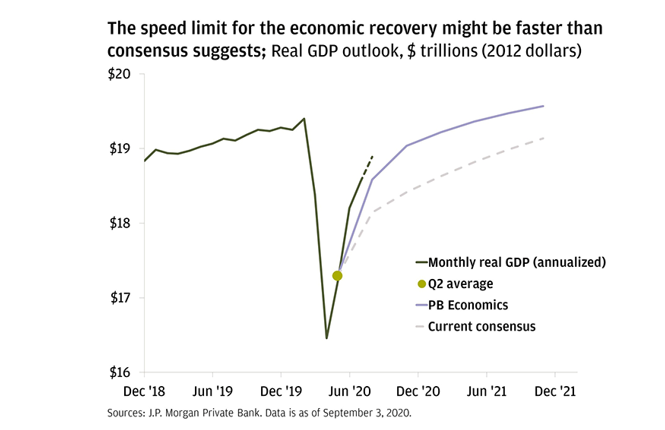A look at how vaccine optimism is progressing

As we come to the end of the first month of 2021 most Wall Street strategists are looking for stock prices to keep going up. After the wild ride of 2020, with its high and lows, investors are expecting continued volatility but seem to agree that we won't see the same issues as last year. We have vaccines and the world 'will get back to normal', but are we right to have priced in this optimism?
Global stock markets have been rising since Biden was officially named U.S. president-elect on November 7th, 2020 and were propelled even higher by the start of coronavirus vaccination campaigns around the world. Governments rushing to distribute the vaccine to the masses has sent risk sentiment into overdrive. The plan is to achieve the so-called "herd immunity" by the second half of 2021.
Herd immunity will work to curb the spread of the virus, and in turn, economic lockdowns and social distancing policies can be removes, which ultimately leads to growth and a return to normal in terms of economic activity. With that also comes robust consumer spending and stronger corporate earnings which theoretically should boost stocks even higher.
Of course, there are also other positives contributing to the market's relentless rally, namely news of stimulus plans by Central Banks, the likelihood of lower for longer interest rates, in addition to reduced uncertainty around US politics, with Joe Biden now in the White House.
But herd immunity is an important element contributing to this stock market euphoria because the market has "priced in" the rapid rollout of COVID-19 vaccines, and therefore investors buying stocks today, while dumping safe-haven assets such as gold, are most likely expecting a return to normal sooner rather than later.
But what if 'herd immunity' is not achieved in 2021?
The hard fact is that herd immunity cannot be achieved unless a large enough number of people get immunized and life can't fully return to normal until the virus is gone.
Therefore, the questions investors need to answer before declaring victory against coronavirus and pushing the S&P500 from record highs to higher highs are: will everyone in the world have access to the vaccines and will they all agree to take it?
Epidemiologists initially estimated that 60% to 70% of the population needs to get immunized for the virus to fade away and life to return to normal. But now, Dr. Anthony Fauci in the US and others are shifting that number upward. Last week, in an interview with CNBC News, Dr. Fauci said '75, 80, 85 percent'.
In a telephone interview the next day he said that hard as it may be to hear, he believes that it may take close to 90% immunity to bring the virus to a halt - almost as much as is needed to stop a measles outbreak. He added that the revised number is, partly based on new science, and partly on his gut feeling that the country is finally ready, under President Biden, to hear what he really has to say.
In a recent poll by the Kaiser Family Foundation, the portion of people in the U.S. saying they definitely would not get a COVID-19 vaccine even if it were available for free and deemed safe by scientists sits at 37%. (Source: KFF https://www.kff.org/coronavirus-covid-19/report/kff-covid-19-vaccine-monitor-december-2020/)
Therefore, people would need to almost universally accept to roll up their sleeves and take the shot in order for the world to finally put this morbid episode behind it.
A recent article in The Wall Street Journal reported that some companies are considering paying their employees to get a Covid-19 vaccine. (Source: The WSJ https://www.wsj.com/articles/dollar-general-will-pay-workers-to-get-a-covid-19-vaccine-11610542800)
The retailer Dollar-General for example, which has 157,000 employees, is offering 4 hours of pay to incentivize staff to get vaccinated. Other companies are considering one-time bonuses to encourage their employees to get the shot. But as I was reading online comments related to this article, I noticed most readers condemn the corporate world for adopting such vaccine-incentive programs. Many people are skeptical and warn the vaccine is a scam from Big Pharma. Others fear the vaccine will somehow alter your DNA.
There is even an apocalyptic conspiracy theory that has spanned all over social media claiming that the coronavirus pandemic is a cover for a plan to implant trackable microchips and that Bill Gates is behind it. What took me by surprise is the number of educated professionals, including physicians who are among these vaccine-skeptics.
I recently came across a pollon LinkedIn related to that same article with the results suggesting that 58% of respondents will not take a COVID-19 vaccine before returning to the office.
And the amount of anti-vaccine sentiment revealed from feedback in the comments section is quite interesting: most comments cite worries about possible side effects and lack of trust in governments to ensure the vaccines' safety and effectiveness. Many also write about their concerns that the vaccine is too new, and about four in ten cite as reasons that the risks of COVID-19 are being exaggerated or that they do not trust vaccines in general.

Source: LinkedIn News
If we rely on this and other social media survey responses, assuming they are statistically valid, in addition to data collected by Research Centers such as the KFF (Kaiser Family Foundation), we can confidently conclude that, at this point, it looks like stocks are discounting the future bad news of not achieving herd immunity in 2021 less than they should.
A study conducted in December 2020 by Zach Nayer, a physician at Riverside Medical Center in Newport News, cites that "if the virus is left to spread at its current rate with no vaccine, it would take 55 months from October 2020 to achieve herd immunity in the United States." (Source: Statnews https://www.statnews.com/2020/12/17/calculating-our-way-to-herd-immunity/)
That means May 2025!
Consensus feels like the recovery can only go so far and so fast without a vaccine. In a recent note to clients, J.P. Morgan Private Bank wrote that the speed limit for the economic recovery, now that that vaccination has started, might even be faster than consensus suggests with monthly real GDP in the U.S. to reach nearly $20 trillion by December 2021.

What about emerging markets?
The issues in getting herd immunity in developed markets has to be considered alongside the rollout of the vaccine in developing markets. If the vaccine is made available to these nations, then it is likely that there will be widespread vaccination. With less skepticism in the vaccines, it should get much higher take-up.
The problem will always be logistics and getting the vaccine to everyone to create the immunity. If this does not happen the virus will continue to mutate and will be introduced back into markets which still have not gained herd immunity.
Conclusion
I am not predicting a stock market crash in 2021. I believe this pandemic will end eventually. Just like other large epidemics in the past 100 years that ultimately disappeared, either through vaccinations, or in most cases when antibodies are developed by enough of the affected population to confer longer-term immunity.
The concerns we have are in the medium-term. We think that vaccine optimism has been enthusiastically priced into the markets and when get close to the end of H1 we are still seeing deaths, lockdowns and restrictions the optimism could be just as 'enthusiastically' removed.
This article was submitted by SquaredFinancial.

